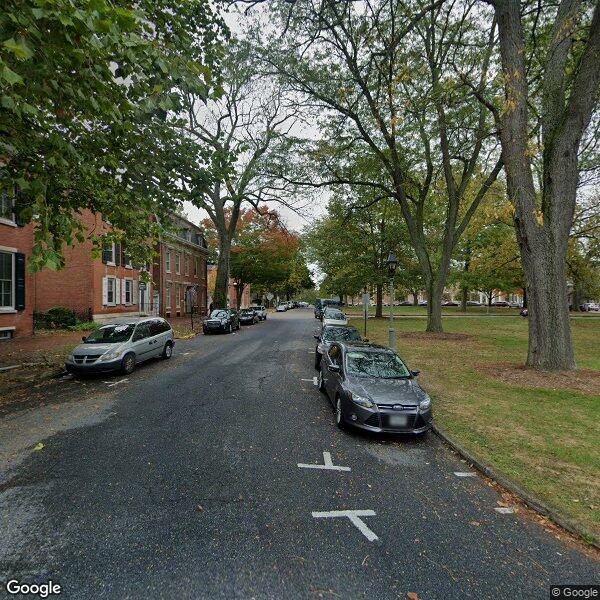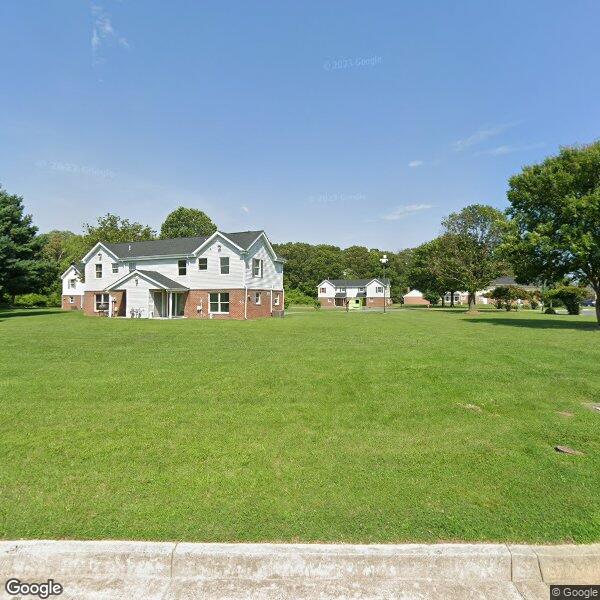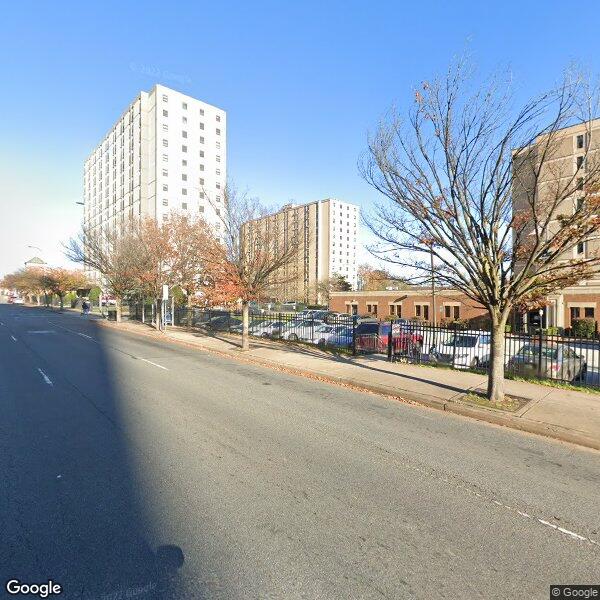The Delaware Guide to Section 8 Housing
Finding an affordable place to live can be tough for Delaware families, particularly as rental prices continue to rise in areas like Wilmington and Newark. Section 8 Housing, also known as the Housing Choice Voucher Program, helps by providing financial assistance to low-income families and individuals.
Section 8 in Delaware is available for those in need of safe and affordable rental housing, but understanding who is eligible and knowing where to apply can be confusing. This guide answers frequently asked questions and provides information potential applicants need to take the next steps.
What Is Section 8 Housing in Delaware?
Section 8 is an initiative the federal government designed to help low-income individuals and families find safe places to live. Named after section 8 of the U.S. Housing Act of 1937, this program meets the needs of those who cannot afford the soaring rental prices that exist in many parts of the state.
Through Section 8, participants receive monthly coupons that they can use to help pay rent on the qualifying house or apartment of their choice. It is administered locally by public housing authorities (PHAs). According to the U.S. Department of Housing and Urban Development, 5,771 Delaware families use this program to live in homes they otherwise may not be able to afford.
What Is the Most Section 8 Will Pay in Delaware?
To determine how much Section 8 in Delaware will pay, HUD establishes fair market rent (FMR) values every year. These FMRs reflect the cost of renting a moderately priced unit in a particular area. The average cost of rent in Delaware is $1,308 per month but this amount varies depending on the specific area of the state, the size of the rental unit, and other factors.
As a general guideline, spending more than 30% of household income on rent creates financial hardship. Therefore, vouchers often pay the remaining amount after a family has contributed up to 30%.
Certain dollar amounts are also deducted for each person in the home, further lowering the amount a family must pay. In some cases, the program sets a maximum family contribution at 10% of their income, a welfare rent amount, or another minimum amount, such as $50 for rent and utilities.
Fair Market Rent
The HUD Section 8 program pays rents for low-income households directly to private landlords. The Housing Authority of Delaware will pay about 70% of a tenant’s rent, while the tenant will pay the other 30%. Fair Market Rents generally determine the maximum rent that a Section 8 landlord will be allowed to charge their residents. The table below shows current fair market rents for Delaware.
What are the Delaware Section 8 Housing Requirements?
To qualify for Section 8 in Delaware, individuals and families must meet the following eligibility criteria:
- Meet HUD’s definition of a family
- Earn below 50% of the area median income (AMI)
- Be U.S. citizens or non-citizens with documented eligibility
- Have Social Security numbers for everyone in the home
- Allow the housing authority to collect information
- Show a history of acceptable behavior
Some PHAs, including the Newark Housing Authority, may also conduct a background check and credit report on everyone in the home. Others, like the Wilmington Housing Authority, may prioritize applicants who are elderly, disabled, or homeless.
What are the Income Limits for Housing Assistance Programs in Delaware?
The median monthly income across Delaware is $6,904 but it varies by region. The federal government considers households with incomes below 80% of the median to be lower income and eligible for Section 8. However, the majority of vouchers each year go to those earning less than 30% of the median income in the region.
The number and demographics of people in the household also affect the income limits and the value of the housing voucher. For example, a family with children, senior citizens, or disabled people may have a different income limit than a family of young adults without disabilities.
Income Limit
Income Limits are maximum income limits allowed based on household size. The following limits were established by HUD for low income households to be eligible for housing assistance in Delaware for 2024.
How Long Does it Take to Get Approved for Section 8 in Delaware?
The approval timeline for Section 8 in Delaware varies based on factors such as housing demand in a specific area and the efficiency of the local PHA. After applying, qualified individuals and families are on a waiting list, and the duration on this list can fluctuate. Some area waiting lists include thousands of families.
On average:
- Wilmington: Waiting lists may extend to 2-3 years due to high demand
- Dover: Shorter waiting periods but fewer vouchers available
- Newark: Moderate wait times, often ranging from 1-2 years
Upon acceptance, applicants attend information sessions about the program. They then have 60 days to find a suitable house or apartment and seek approval from HUD. The overall process timeline can differ significantly from one jurisdiction to another.
How To Qualify for Section 8 in Delaware
Qualifying for Section 8 in Delaware involves meeting specific criteria related to financial situation, location and family circumstances. Generally, priority is often given to families with children, elderly individuals, disabled applicants, and those who are unhoused. The Wilmington Housing Authority, for example, states they give preference to families whose declared head or co-head of household has one or more of the following characteristics:
- Elderly
- Disabled
- Working at least part-time
- Homeless and living in a verified shelter
They also show preference to families who lost their homes in a federally declared disaster and youth aging out of foster care. However, these characteristics are not requirements.
How To Apply for Section 8 Housing in Delaware
In most locations, people can fill out a preliminary application for Section 8 in Delaware by calling or visiting the nearest housing authority. To apply:
- Locate Your Local PHA: Identify the public housing authority in your area. Visit their website or call for application details.
- Complete the Preliminary Application: Provide basic information about household income, size, and other relevant details.
- Submit Required Documentation: Include proof of income, Social Security numbers, and identification for all household members.
- Attend Information Sessions: After approval, you may be required to attend sessions to understand program rules and responsibilities.
Housing authorities in some areas also have online applications. Before beginning the paperwork, applicants should have the following information ready for each member of the household:
- Date of birth
- Social security number
- Annual gross income from all sources
- Citizenship status
Once officials at the housing authority have reviewed the pre-application, they may ask applicants to verify that the information they provided is true by showing documentation. They also may conduct a home visit and interview members of the family.
Approved applicants have 60 days to find a suitable rental unit.
Can I Transfer my Section 8 Voucher to Delaware?
Yes, Section 8 vouchers are portable, and participants can transfer their vouchers to Delaware from another state. However, the transfer requires coordination with both the current public housing authority and the desired one in Delaware. It is necessary to confirm the feasibility of the transfer before planning to move, as not all areas may have the capacity to accept portable vouchers.
To initiate the transfer, participants should communicate with both housing authorities, ensuring a smooth transition of housing benefits while relocating to a different jurisdiction.
Can I Buy a House with a Section 8 Voucher in Delaware?
While most people use Section 8 in Delaware for help paying their rent, the Housing Choice Voucher Homeownership Option does allow some participants in Delaware the opportunity to use their vouchers toward homeownership.
To qualify for this option, individuals must meet the following requirements:
- Earn a minimum amount of money per year (varies by PHA)
- Work at least 30 hours per week for at least one year unless elderly or disabled
- Attend approved education and counseling sessions about homeownership
- Have not owned a home within three years or previously defaulted on the program
- Meet local rules, such as minimum savings or credit score
Interested individuals should consult with their local housing authority for detailed requirements and guidance on using Section 8 vouchers for homeownership.
What Are the Public Housing Authorities in Delaware?
Public housing authorities are local or regional agencies that operate within cities, counties, or regions. They focus on providing affordable housing solutions at the local level and may have their own programs and policies tailored to the needs of their communities. They rely on a combination of federal, state, and local funding.
The five following public housing authorities administer Section 8 in Delaware:
- Delaware
- Dover
- Newark
- New Castle County
- Wilmington
The Delaware Public Housing Authority serves Sussex County and the areas of Kent County outside the city limits of Dover.
Delaware Waiting List for Section 8 Housing
Waiting lists are common in Delaware due to limited voucher availability. When the number of families who need housing is greater than the number of vouchers available, officials place new applicants on a waiting list:
- Lists are typically prioritized based on application date and household characteristics.
- Applicants can check their status by contacting their local PHA.
- PHAs announce openings through websites, newspapers, and community postings.
When an application is at the top of the waiting list, the housing authority contacts the applicants to set up an in-person appointment. At this appointment, applicants must provide documents to verify the information they provided and sign an agreement to receive the vouchers. The applicants must also undergo a background check at this time.
Most local housing authorities only accept applications when there is room on the waiting list. When the waiting list is open, housing authorities let the public know by advertising in the classified section of the local newspaper or posting the information on their website.
Is Emergency Housing Assistance Available in Delaware?
Emergency Rental Assistance Serving Delaware
Delaware Housing Assistance Program (DEHAP)
Program Type: State
Details: Offers emergency rental assistance, covid relief, utility assistance and more
Yes, Delaware offers emergency housing options. Because of the time it takes for approval, Section 8 is not the best option for emergency housing. However, the state does have other resources to help people find places to stay in times of crisis.
State service centers provide funds to non-profit organizations that provide emergency shelters and transitional housing. Residents can also dial 211 on their phones to speak with trained professionals who can guide them to the appropriate services.
How To Stay Informed About Section 8 in Delaware
Section 8 in Delaware provides essential support for low-income families, empowering them to secure safe and affordable housing. Receiving housing assistance demands understanding the eligibility criteria, income limits, application processes and the role of public housing authorities. Our information further empowers individuals and families by keeping them aware of waiting list openings so that they do not miss a chance to apply for Section 8 in Delaware.















